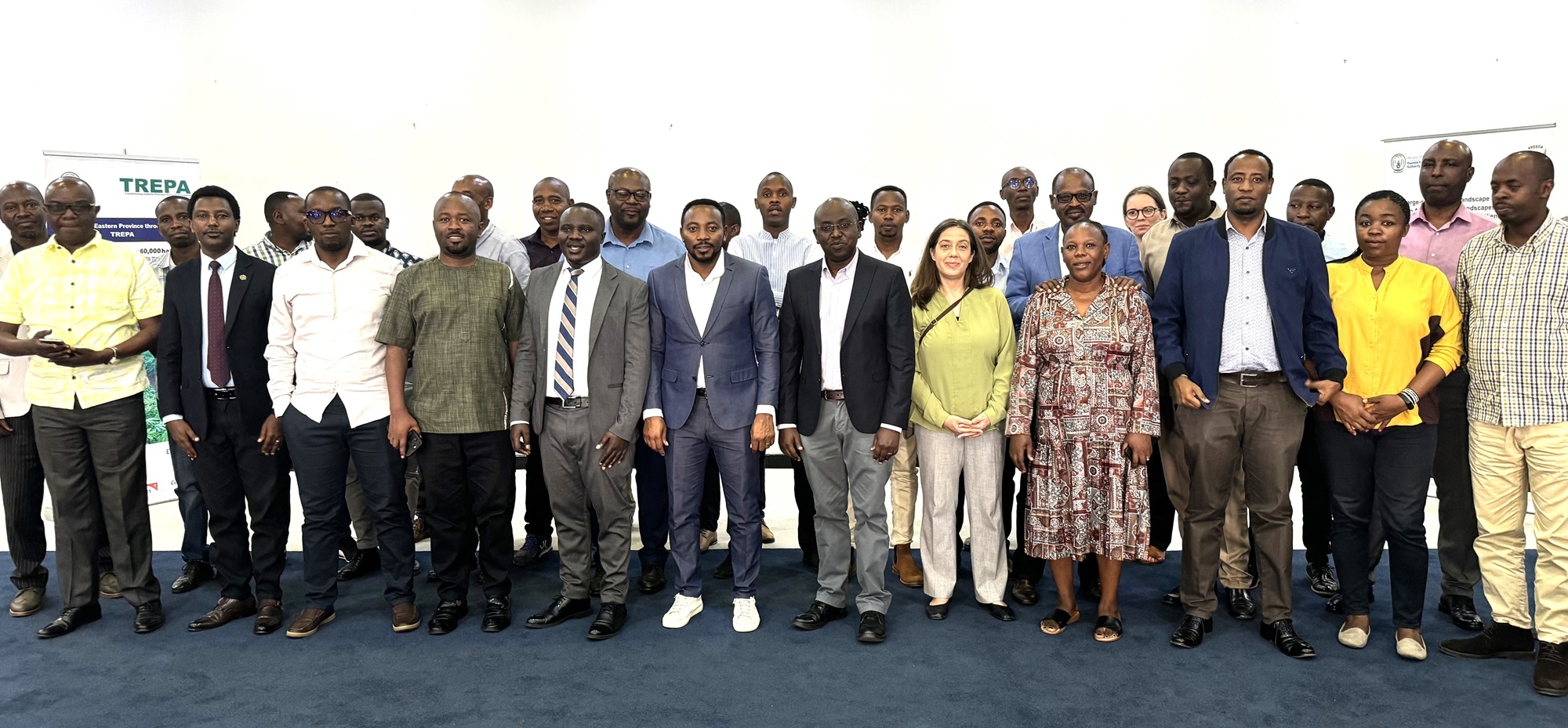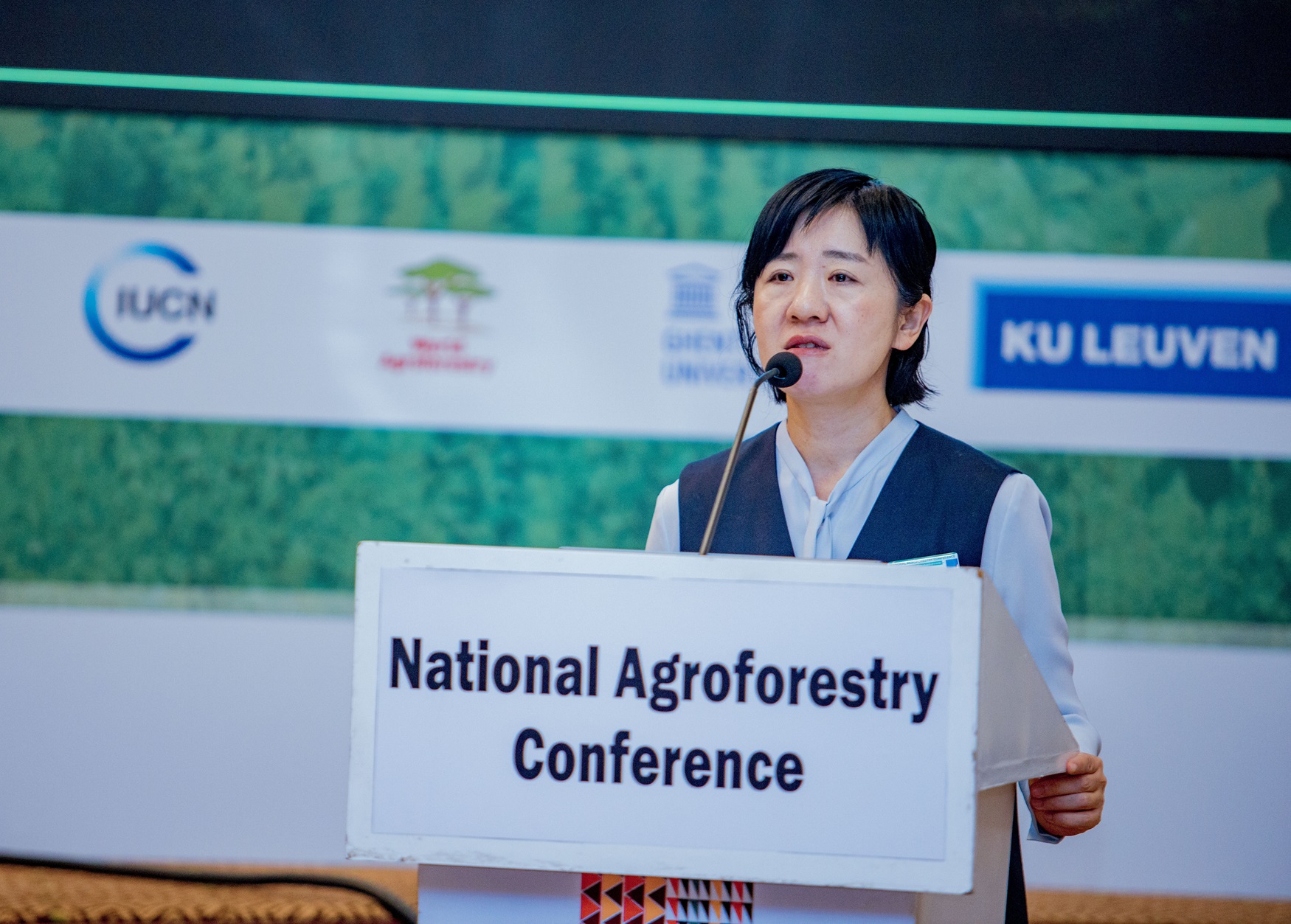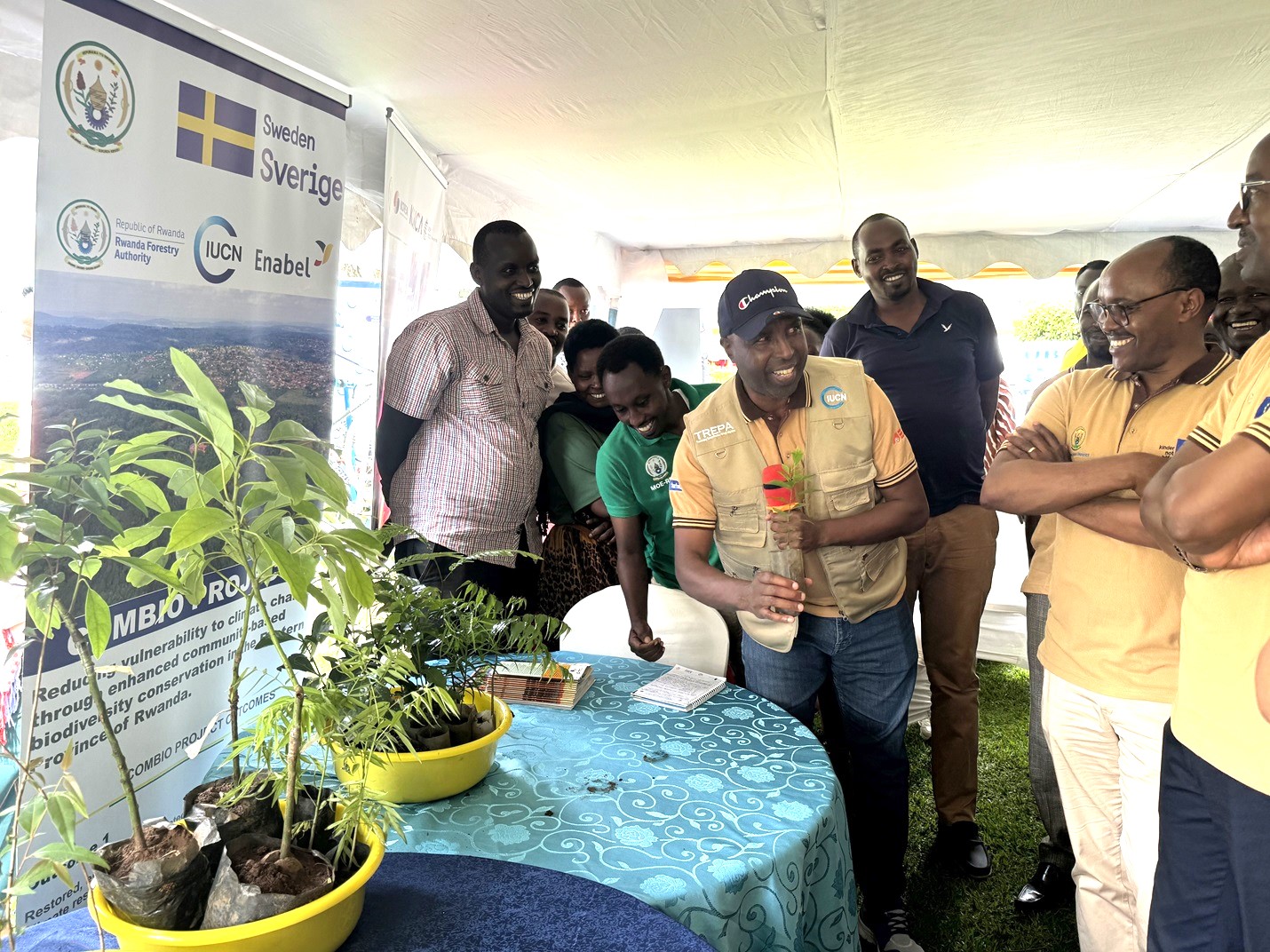TREPA project to plant over 18,000 ha of native species during 2023-2024 tree planting season
Rwanda’s Eastern Province contains the largest area of national farming lands, but it is highly vulnerable to increasing droughts. With smallholder farmers depending exclusively on rainfall, changes to weather seasonality including shorter and more intense rainy seasons have led to crop failure, and food shortages.
In response to these climate change threats, integrated adaptation measures are needed to enhance the resilience of the landscape in the Eastern Province, which will sustain the agricultural production and enable sustainable growth of the region in a manner that reduces poverty, increases resilience, and achieves food security.
In 2021, the Government of Rwanda and International Union for Conservation of Nature- IUCN secured a funding of USD33.8 million from the Green Climate Fund (GCF) to implement the project entitled “Transforming Eastern Province through Adaptation’’ commonly known as TREPA project. The implementation of the six-year investment is being jointly executed by IUCN in collaboration with the Government of Rwanda through Rwanda Forestry Authority (RFA, Enabel, CIFOR- ICRAF, Cordaid, and World Vision.
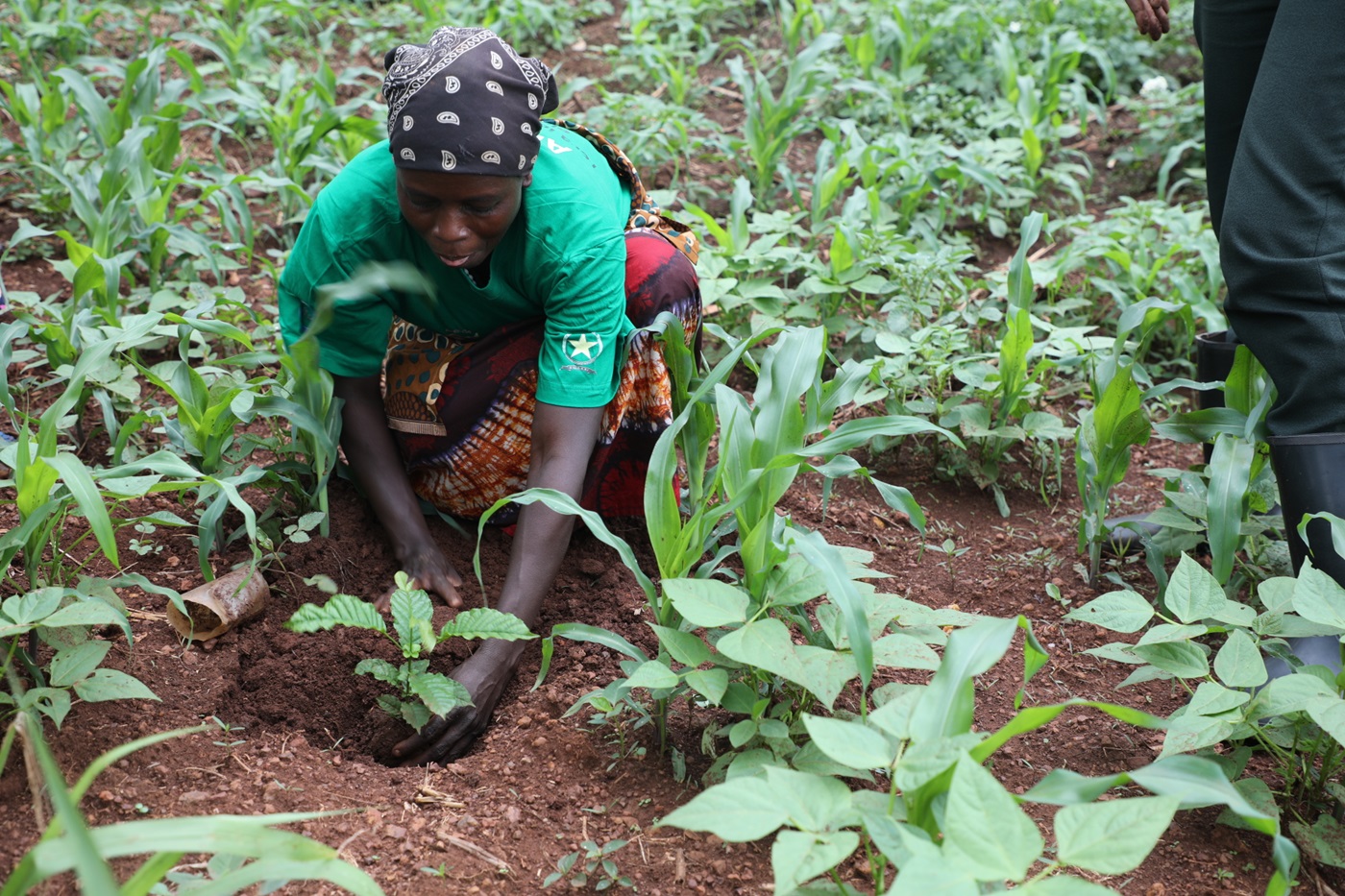 Photo: Rural women are actively involved in the implementation of TREPA project
Photo: Rural women are actively involved in the implementation of TREPA project
The TREPA project is on course to restore 60,000 ha of drought degraded landscapes into climate resilient ecosystems through reforestation, agroforestry, restoration of pasturelands and soil erosion control measures in all the seven districts of the Eastern Province of Rwanda. The project will also increase the resilience of 75,000 smallholder farmers in the Eastern Province.
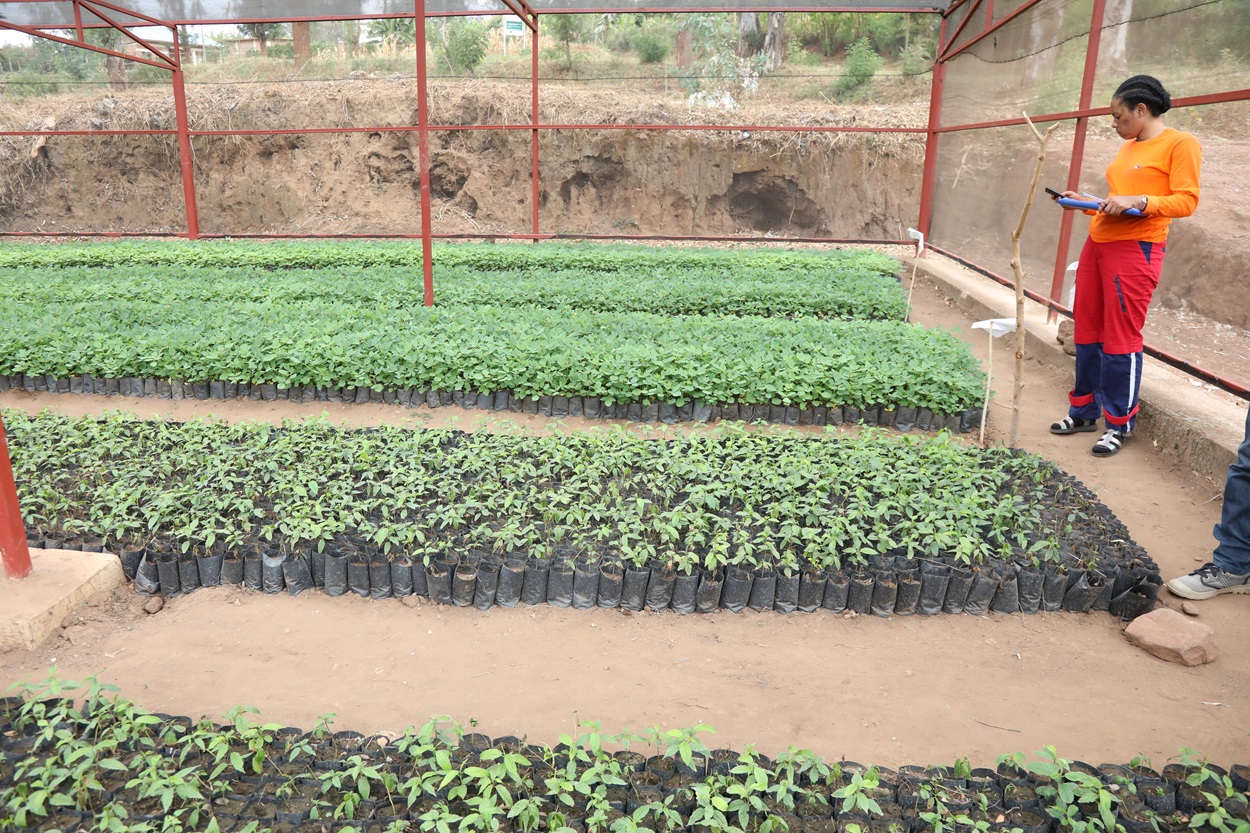 Photo: TREPA project has produced massively nurseries across entire Eastern Province
Photo: TREPA project has produced massively nurseries across entire Eastern Province
TREPA will improve food security for over 120,000 households living in high risky areas, over 100,000 rural Households will access Improved Cooking Stoves, and 260,000 people will directly benefit from enhanced financial inclusion and access for climate resilient investments.
on 28th October 2023, the Government of Rwanda through Ministry of Environment and Ministry of Local Government in collaboration with IUCN and other partners launched the 2023/24 national tree-planting season during which the country targets to increase and maintain forest cover with about 63 million seedlings, according to the Rwanda Forestry Authority.
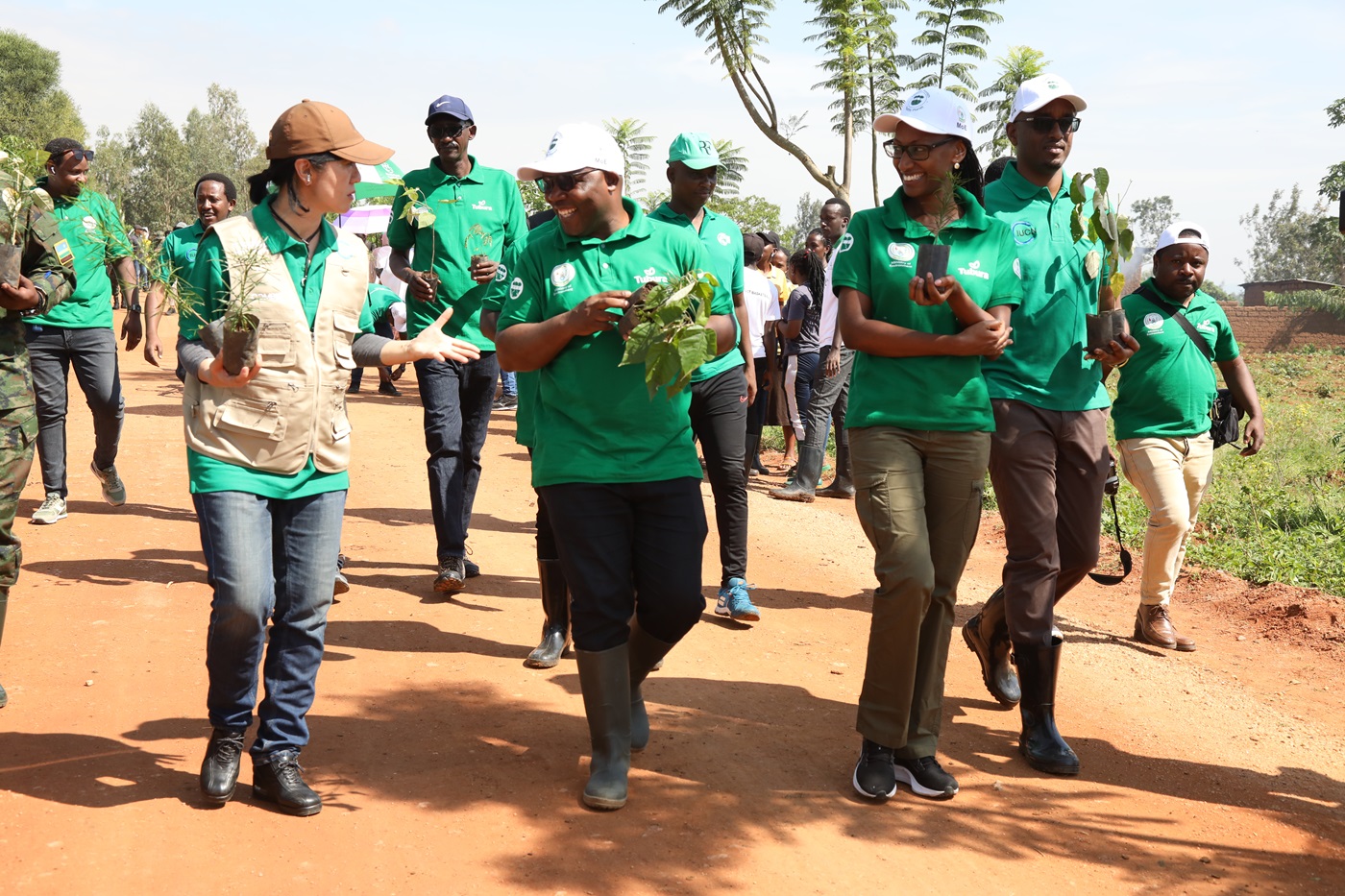 Photo: During Umuganda in Gashora Bugesera, communities and their guests planted over 14,000 native tree seedlings
Photo: During Umuganda in Gashora Bugesera, communities and their guests planted over 14,000 native tree seedlings
In the Eastern Province, the tree planting season was done during a community work (Umuganda) activities carried out in ones of TREPA project sites under restoration in the entire Eastern Province of Rwanda across 7 districts namely Nyagatare, Kirehe, Gatsibo, Rwamagana, Kayonza, Ngoma. TREPA project provided seedlings to all 7 districts such as agroforestry, Silvopastoral, afforestation, roadside, riverbanks, and demo plots trees.
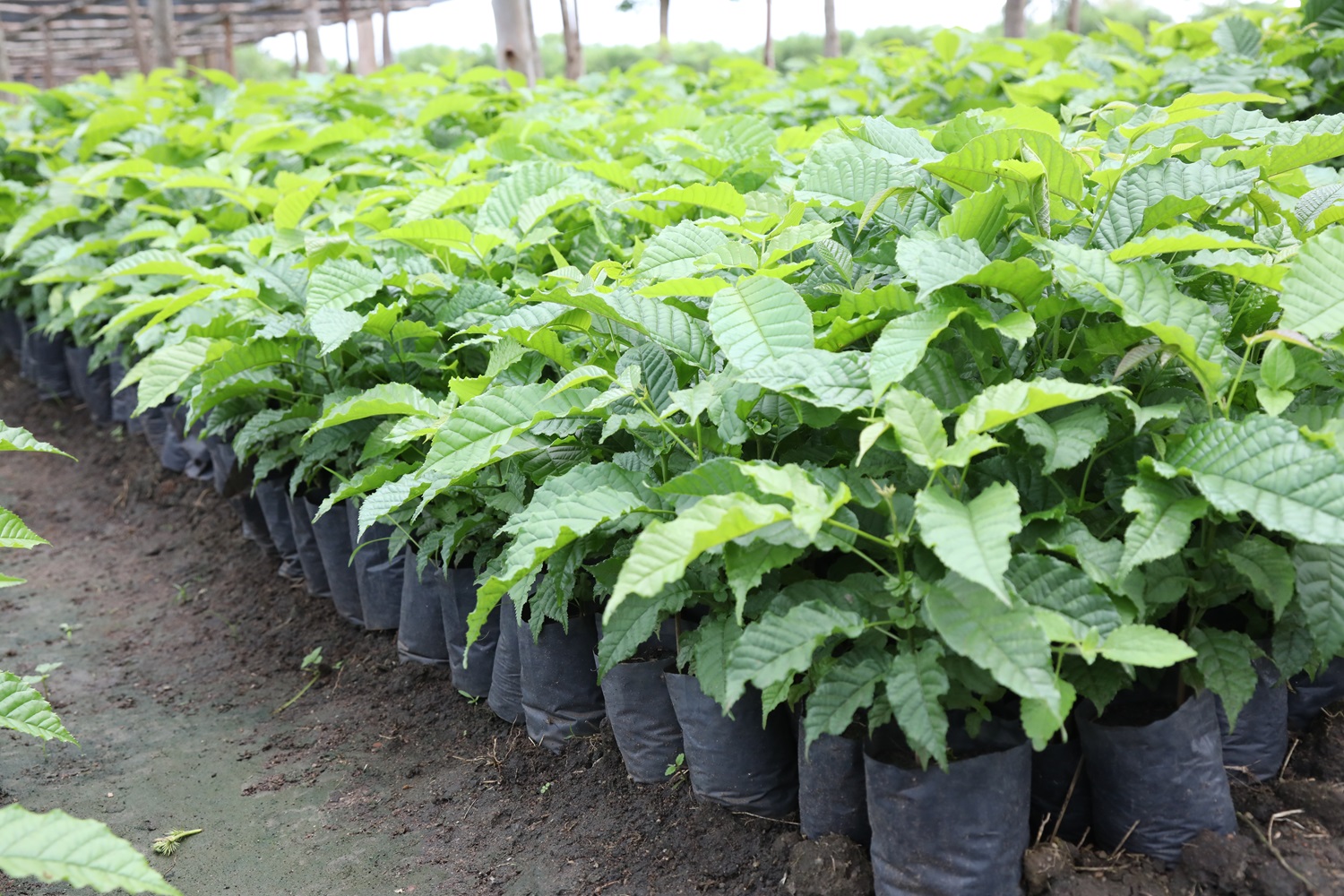 Photo: Native tree species have a better chance of survival because they have adapted to the environments where they naturally grow
Photo: Native tree species have a better chance of survival because they have adapted to the environments where they naturally grow
At national level, the tree planting season took place at Kagomasi cell, Gashora sector of Bugesera District, in Eastern Province where IUCN joined the Climate, Environment, and Natural resources Sector, the Diplomatic Corps, and local communities.
During Umuganda in Gashora Bugesera, communities and their guests planted over 14,000 native tree seedlings in an agroforestry setting across 35 hectares.
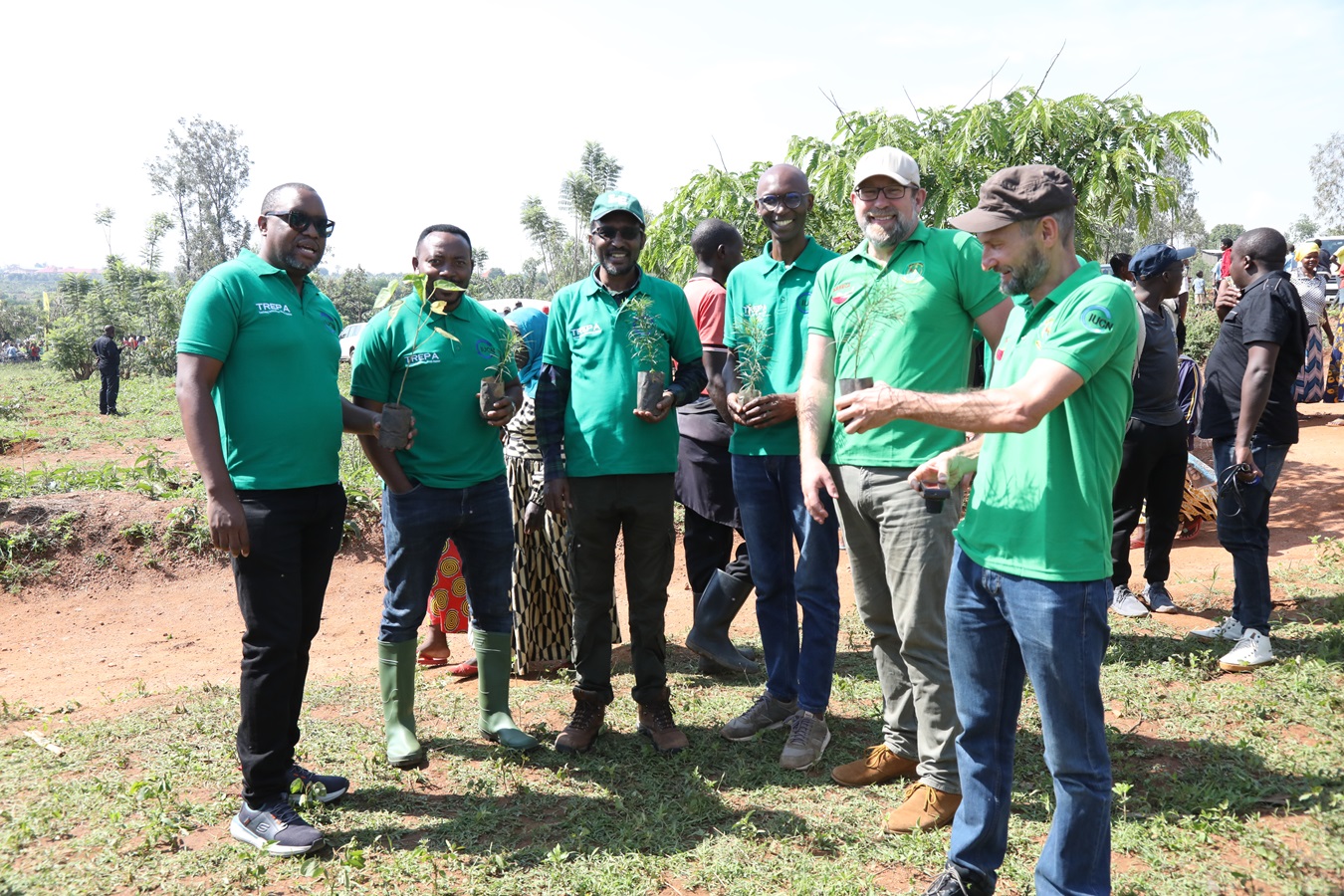 Photo: IUCN and GIZ team during tree planting season in Bugesera
Photo: IUCN and GIZ team during tree planting season in Bugesera
Speaking to the journalists, the Director General of Rwanda Forestry Authority, Dr Concorde Nsengumuremyi, said that Eastern Province will account for the largest proportion (about 40 per cent) of trees to be planted, compared to other parts of the country.
"The high number of seedlings is in Eastern Province where we have around 23 million trees. The reason is that it's an area which needs more efforts in terms of the number of seedlings that should be grown, not only on the farms [under agroforestry], but also along the sides of roads and some areas dedicated to forestry," he said.
He indicated that historically, 40 or 50 years ago, the area had enough forest cover but it experienced deforestation as the people cut trees in search of agricultural land. Charcoal making and firewood as well as construction also contributed to a reduction in tree cover.
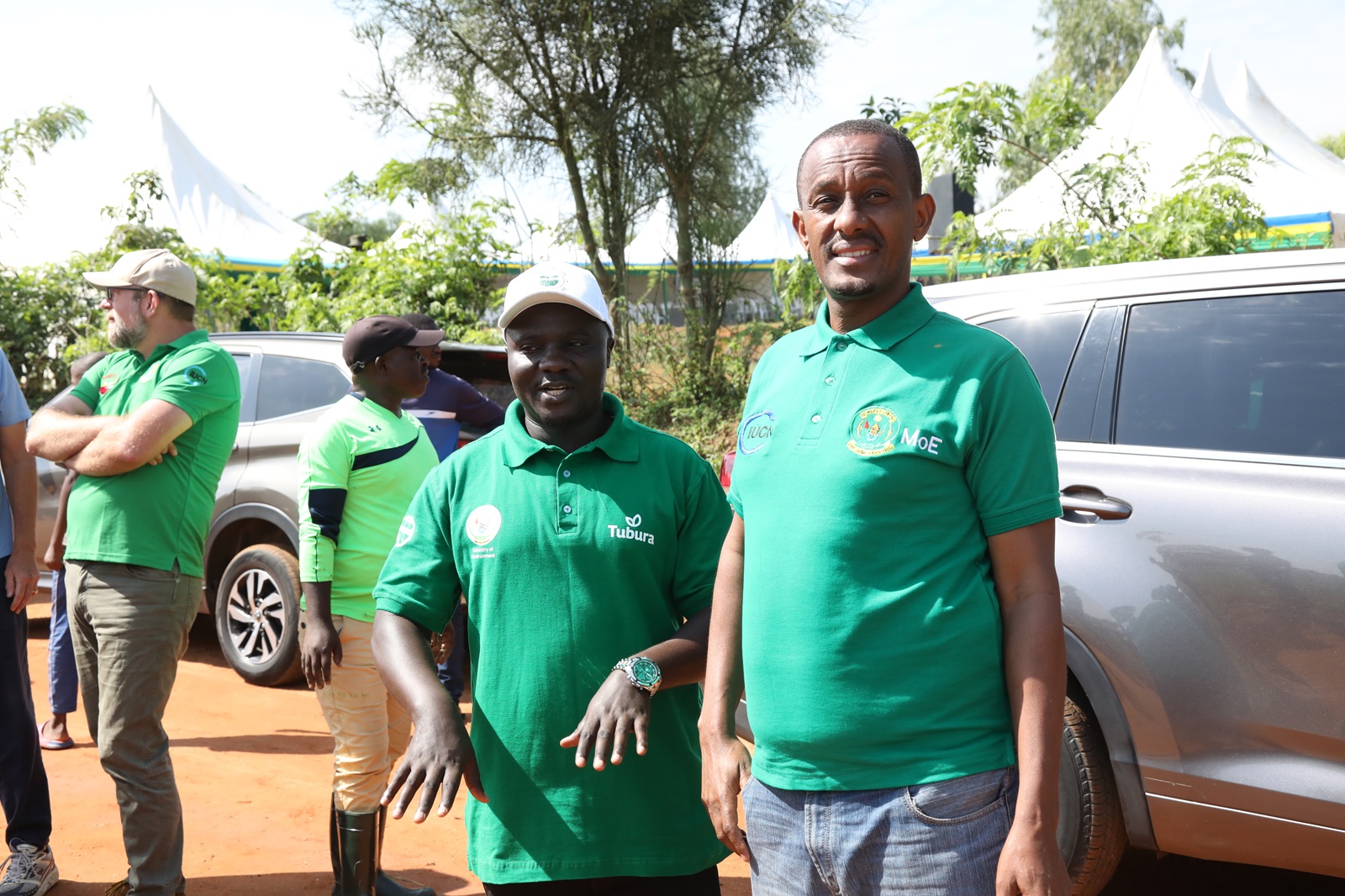 Photo: Director General of Rwanda Forestry Authority, Dr Concorde Nsengumuremyi
Photo: Director General of Rwanda Forestry Authority, Dr Concorde Nsengumuremyi
The aforesaid project involves a huge funding, Nsengumuremyi pointed out TREPA project funded by GCF, AREECA project funded by BMU, Swedish funded project known as COMBIO among many others. All these projects are being implemented in collaboration with IUCN and other partners.
 Photo: Native trees require less water because they can withstand the weather conditions where they naturally grow
Photo: Native trees require less water because they can withstand the weather conditions where they naturally grow
According to the Ministry of Environment, during this year’s 2023-2024 Tree Planting Season, Rwanda will plant 63 million trees. This is where the TREPA project among other projects will be contributing tremendously.
The focus will be made on native trees and agroforestry species, while simultaneously establishing new forests and restoring existing ones across all districts in the Eastern Province of Rwanda.
This approach will not only contribute to the restoration of the Eastern Province's forests but will also provide a sustainable source of nutrition for local communities.
 Photo: Residents of Bugesera participated in tree planting season in the Eastern Province
Photo: Residents of Bugesera participated in tree planting season in the Eastern Province
To ensure the restoration success, the IUCN and partners have been conducting training programs for local farmers and district officials in charge of forests and agriculture by educating them on sustainable land management practices and the benefits of agroforestry.
 Photo: Kaori Yasuda, Rwanda Country Representative for International Union Conservation of Nature – IUCN in interview with Journalists
Photo: Kaori Yasuda, Rwanda Country Representative for International Union Conservation of Nature – IUCN in interview with Journalists
Kaori Yasuda, Rwanda Country Representative for International Union Conservation of Nature – IUCN, said there was a need for concerted effort to address climate change vulnerabilities in Eastern Province for both the benefits of nature and communities’ livelihoods.
 Photo: Rural women are actively involved in “Community Forestry approach'' in Rwanda as they gather, process and market forest resources
Photo: Rural women are actively involved in “Community Forestry approach'' in Rwanda as they gather, process and market forest resources
“Right now, with financial support from GCF and other donors, we are focusing on turning drought-degraded ecosystems into resilient landscapes by forest landscape restoration in Eastern Province. That’s because the ecosystem in Eastern Province was degraded by neglected for a long time, while the ecosystem in Eastern Province has a huge potential for the fruit basket for the people of Rwanda, to address food security. And it’s also a home to 3 million people,” she said.
“So, by forest and landscape restoration in Eastern Province, we want to ensure their benefits for people and nature,” she observed.
 Photo: The Minister of Local Government, Jean Claude Musabyimana
Photo: The Minister of Local Government, Jean Claude Musabyimana
The Minister of Local Government, Jean Claude Musabyimana, said that “in the face of the challenges caused by climate change, our commitment to tree planting must never be more critical than today.”
“We are dedicated to not only protecting and maintaining these forests but also continuously planting more trees. The reason behind this dedication is that trees are often referred to as the lungs of our planet. They play a vital role in providing us with fresh air, controlling erosion, safeguarding our water resources, preventing disasters, ensuring food security, enhancing greening efforts, and beautifying our landscape.” He explained.
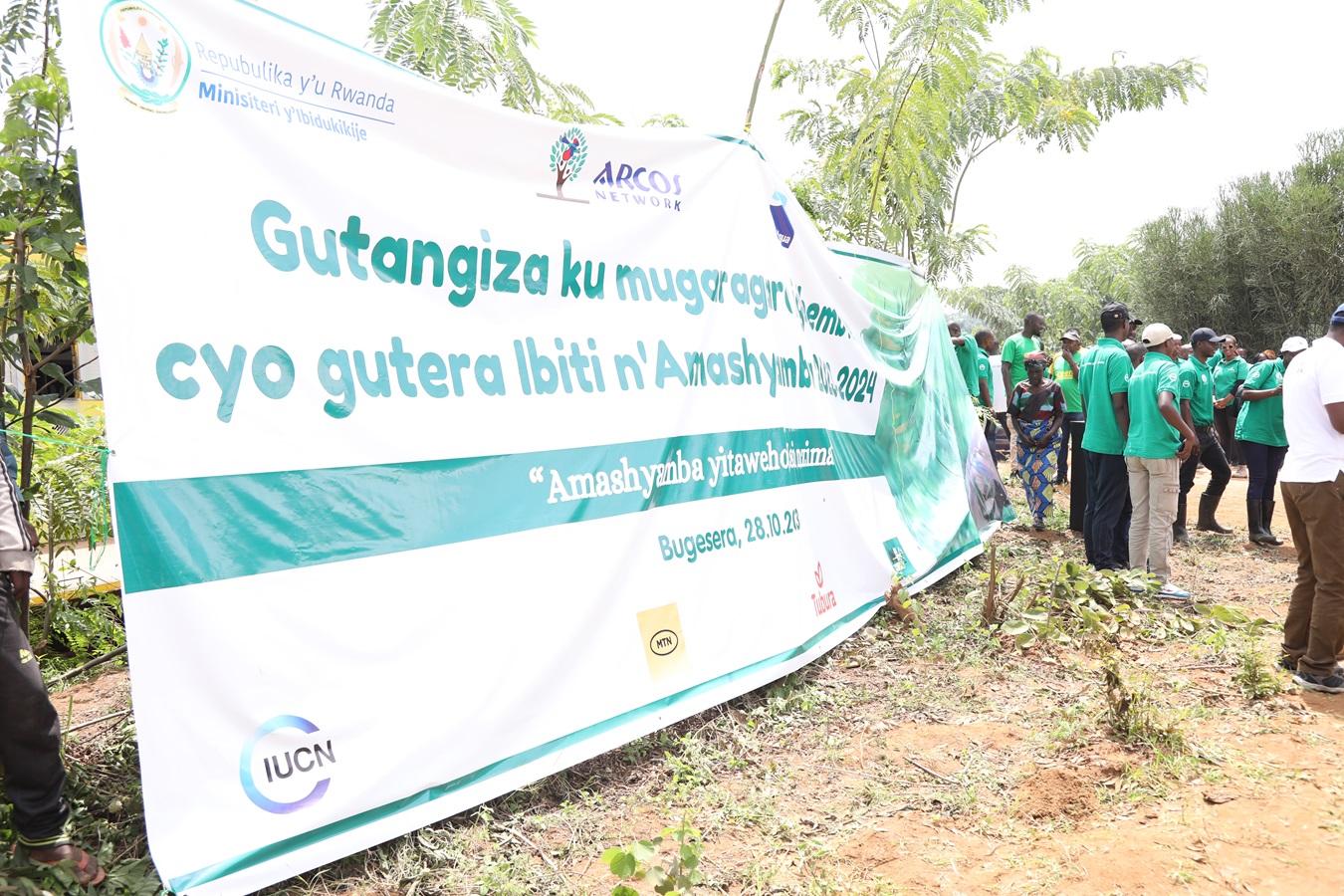 Photo: IUCN supported the launch of 2023-2024 national tree planting
Photo: IUCN supported the launch of 2023-2024 national tree planting
Moreover, Minister Musabyimana adds, “tree conservation also helps in preserving biodiversity and has a substantial impact on our economy.”
Minister Musabyimana has appreciated the efforts of IUCN and donors for their prominent efforts in turning Eastern Province into green.
Media Coverage
Government of Rwanda weekly digest by RwandaOGS: Page 19
Rwanda Television English News
Social Media Coverage
https://twitter.com/IucnRwanda/status/1718221941255938097
https://twitter.com/RwandaEast/status/1718236536129405327
https://twitter.com/urywp/status/1718245702466166964
https://twitter.com/urywp/status/1718246473605746690
https://twitter.com/BugeseraDistr/status/1718250087455797714
https://twitter.com/EnvironmentRw/status/1718290230376079827
https://twitter.com/RwandaForestry/status/1718308000119611886
https://twitter.com/EnvironmentRw/status/1718216998088249795
https://twitter.com/IucnRwanda/status/1717568220507283553
Photos can be found here
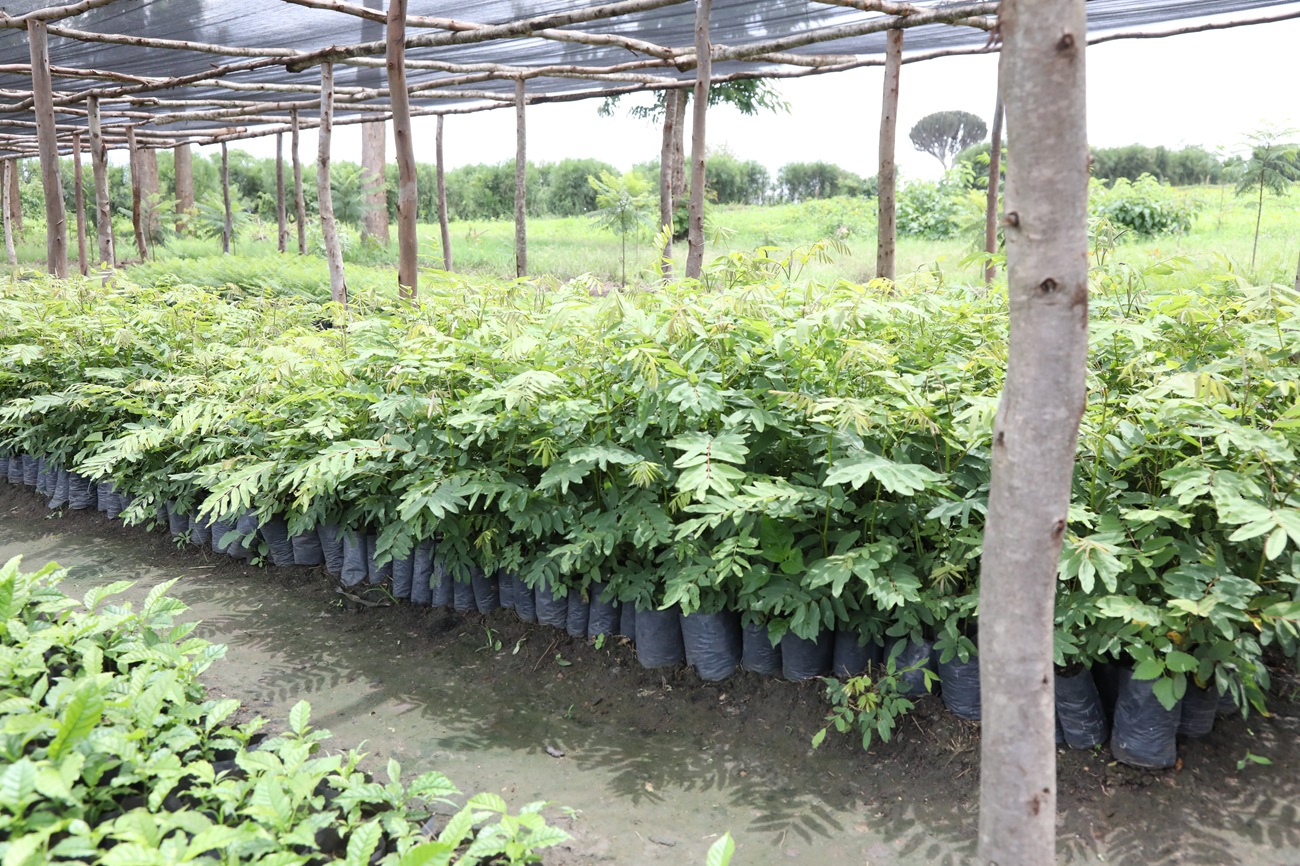 Photo: TREPA project provided seedlings to all 7 districts such as agroforestry, Silvopastoral, afforestation trees
Photo: TREPA project provided seedlings to all 7 districts such as agroforestry, Silvopastoral, afforestation trees
Disclaimer
Opinions expressed in posts featured on any Crossroads or other blogs and in related comments are those of the authors and do not necessarily reflect the opinions of IUCN or a consensus of its Member organisations.
IUCN moderates comments and reserves the right to remove posts that are deemed inappropriate, commercial in nature or unrelated to blog posts.
